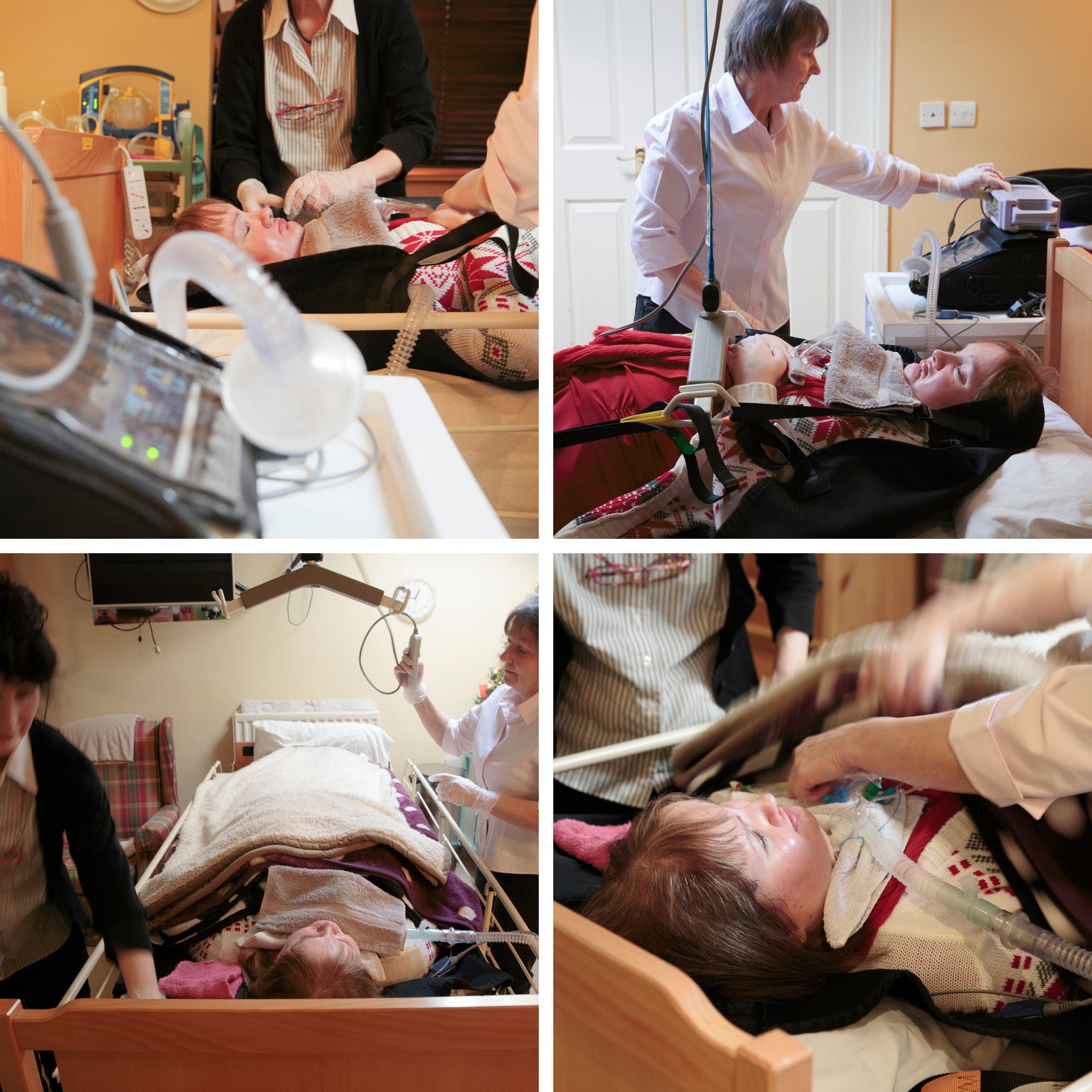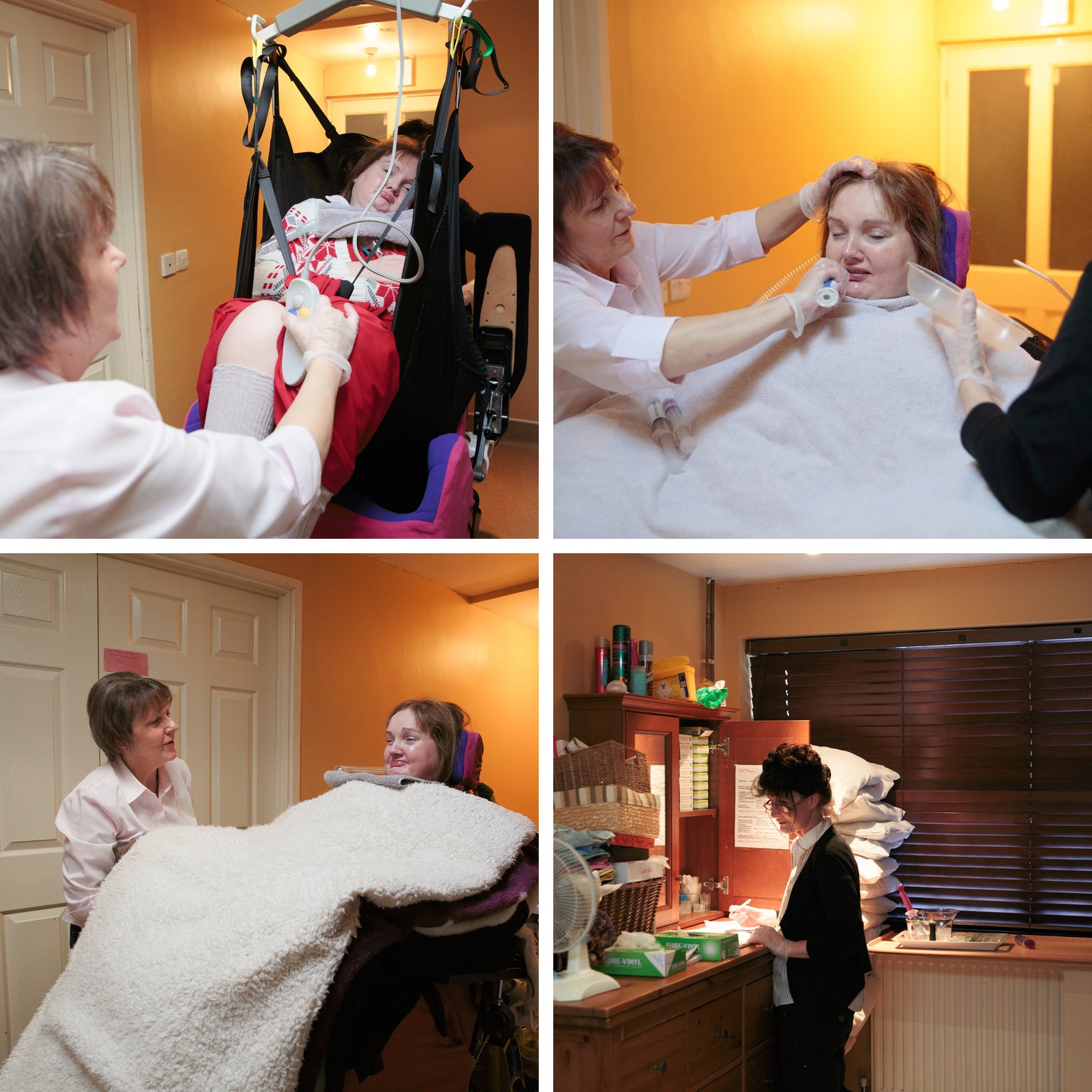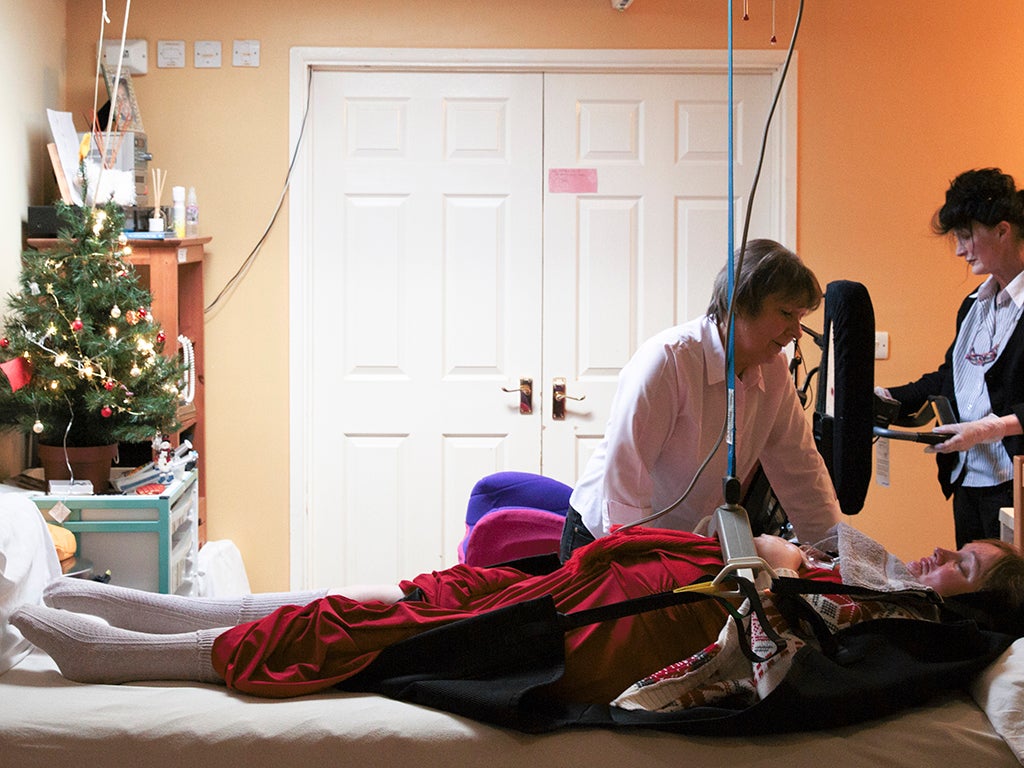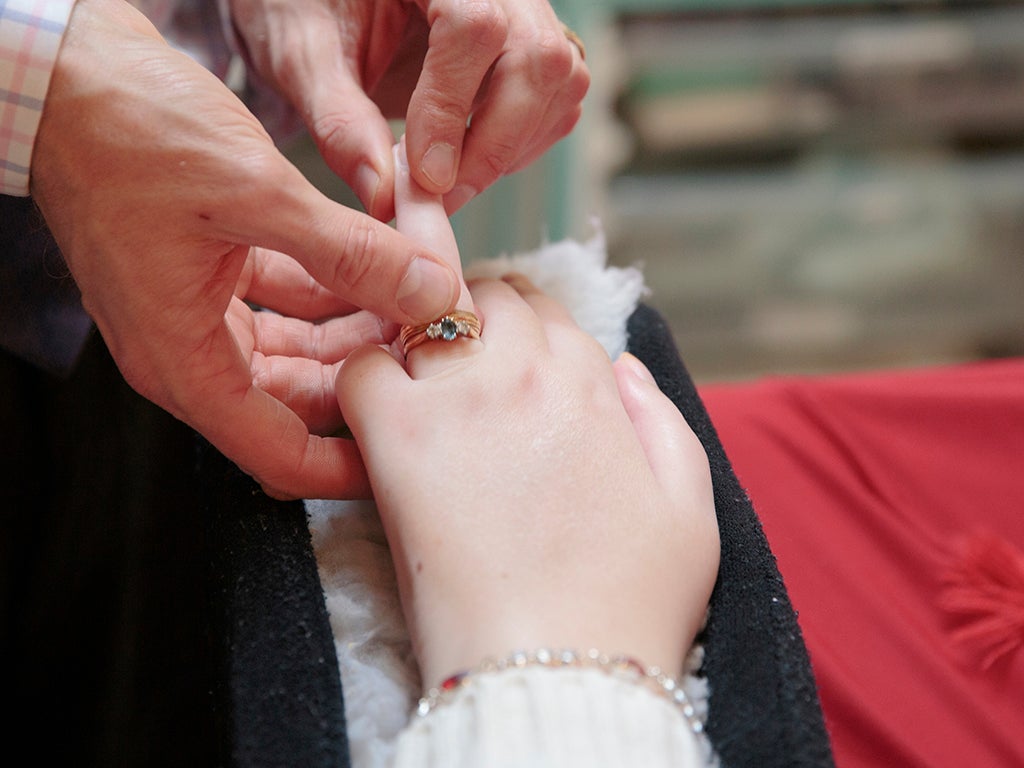Adults get meningitis too, and the rash which won't go away won't necessarily be a symptom
The hospital prepared me for the worst and encouraged me to sign no-resuscitation forms for my wife, but when Mel was in the first stages of her recovery, she was asked if she had a message for me and the boys, she blinked "love"

My wife Mel was enjoying family life with me and our sons Alistair (15 months) and Cameron (3) when she contracted pneumococcal meningitis and septicaemia at the age of 31 in 2003.
It started with an ear infection, and the doctor prescribed antibiotics which seemed to make Mel vomit, but that was apparently normal for these tablets. So I had the day off to look after the children and as a result was not really aware of Mel's condition deteriorating.
Once I had put the boys to bed Mel did seem to be quite poorly. I rang her mum who advised me to ring the doctor as Mel was becoming non co-operative and not really making sense.

The out-of-hours doctor arrived and summoned an ambulance, she continued to not respond to questioning, was uncomfortable and writhing around. Mel was admitted to a ward and I was sent home only to be awoken by a call from the hospital at 6.30am saying Mel had taken a turn for the worst.
By the time I got to the hospital Mel had stopped breathing and been taken to theatre and given an emergency tracheotomy and she was now in a coma. She was continuing to deteriorate as there was tremendous pressure in her skull and she needed neurosurgery, so had to be transferred to London.
I don’t remember anyone talking about meningitis, even pneumococcal meningitis, which Mel had with septicaemia. Mel had none of the symptoms you would have expected, like the rash that won't go away under the pressure of the tumbler, but she did have the other symptoms that are less well publicised.
The hospital prepared me for the worst and were encouraging me to sign no-resuscitation forms, which I refused to do. After about five or six weeks Mel was opening her eyes and responding but the doctors found that she was paralysed below the neck and unable to cope without the ventilator.
She was then transferred back to our local hospital. It was here that we had our first major breakthrough. An occupational therapist worked out how to communicate with Mel via blinking. Asked if she had a message for me and the boys she blinked "love". Although she had huge physical problems, mentally Mel was as sharp as ever.
Mel was first admitted into hospital 12.06.2003 and was not allowed home 22.10.2005.

Since then Mel has slotted into a mad family lifestyle – our two boys are now aged 13 and 15. We have two people to look after Mel 24 hours a day - a nurse and a carer. Going out is a military operation with medicines, spare ventilator, suction machines and a tank of a wheelchair. We have a specially-converted Transit van that makes getting out possible. We can do most things but they do take planning.
Many people believe meningitis only affects babies and students, but international charity Meningitis Research Foundation (MRF) is reminding the public that ‘Adults get meningitis too’ and it can strike anyone, of any age, at any time.
Becky Pierce-Jones explains: "Meningitis is inflammation of the lining around the brain and spinal cord – the meninges. Septicaemia is blood poisoning caused by the same bugs and can be more life-threatening. Septicaemia can occur with or without meningitis.

MRF estimates that since the year 2000 in the UK there have been on average 3,200 cases of bacterial meningitis annually amongst all age groups. It is often hard to distinguish early symptoms of bacterial meningitis from milder viral infections, but it is a serious illness which can kill within hours or go on to cause life-long disabilities."
Although meningitis is typically considered as a disease that affects children, 60% of all UK cases occur in people over the age of 15 and an adult who becomes ill is more than twice as likely to die compared to a child.
"The types of bacteria causing meningitis are different for adults compared to children. For example nearly 60% of meningitis caused by pneumococcal bacteria occurs in those over 25 years of age with those over 65 being particularly vulnerable. Pneumococcal meningitis tends to be associated with more severe outcome than other bacterial causes such as meningococcal disease which is more common in children. 25% of pneumococcal meningitis survivors will be left with a severe disability such as deafness, epilepsy and brain damage compared to under 10% of those who survive meningococcal meningitis."

Christopher Head, MRF Chief Executive, said: “Meningitis and septicaemia are diseases that can leave a baby, child or adult fighting for their life within hours of the first symptoms. Both meningitis and septicaemia can be hard to recognise, as the early symptoms are similar to those of many other milder illnesses. Not everyone gets all the symptoms and they can appear in any order:
- Fever
- Vomiting
- Severe headache
- Stiff neck (unable to put chin on chest)
- Dislike of bright lights
- Very sleepy/vacant/difficult to wake
- Confusion/delirium (sometimes combative/aggressive)
- Rash
- Seizures
- Limb/Joint/muscle pain
- Cold hands and feet/shivering
- Breathing fast/breathless
- Pale and mottled skin
We urge people not to be complacent if a loved one is sick; knowing the symptoms and acting fast can save a life. If anyone has any concerns, trust your instincts and seek urgent medical advice from your local GP or hospital.”
To read more about Mel and Craig Hook and their Life after Meningitis visit the online gallery at: www.meningitis.org/mel-hook
Join our commenting forum
Join thought-provoking conversations, follow other Independent readers and see their replies
Comments
Bookmark popover
Removed from bookmarks